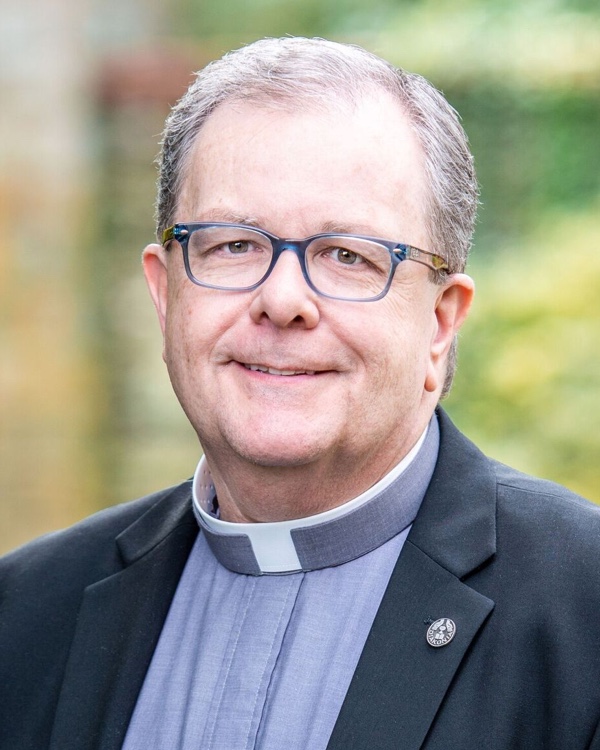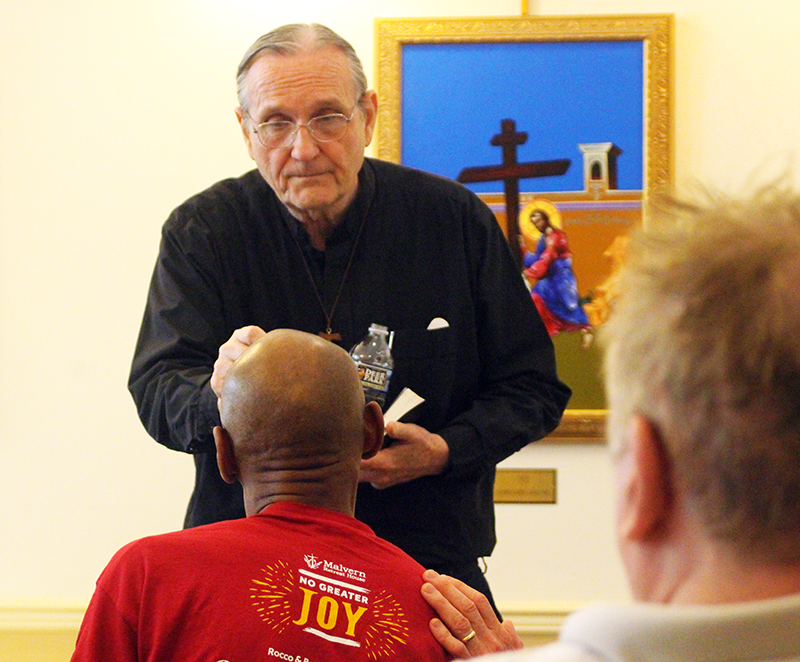
(Oleg Moroz/Tengyart/Unsplash)
A Christmas season amid COVID can make recovery from addiction even more challenging – but not impossible, said local experts.
For those wrestling with substance abuse, memories of “past holidays have always included a drug of choice, alcohol or compulsive eating, and that has become an integral part of the holiday,” said permanent Deacon Dan Giblin, a certified recovery specialist and full-time spiritual advisor at the St. John Vianney Center.
Located in Downingtown, the facility provides behavioral counseling and addictive disease treatment for clergy and religious nationwide.
Even absent a pandemic, the holidays tend to enhance an individual’s mood of the moment, said Deacon Giblin, citing an observation made by his pastor, Father John Newns of St. Ann Parish in Phoenixville.
[hotblock]
“You feel a stronger sense of wherever you are in your life during the holidays, whether that’s a good place or a bad place,” said Deacon Giblin.
‘A global pity party’
The COVID crisis, now approaching the one-year mark, has led to “a global pity party” at which “we are talking ourselves into self-medicating more,” he said.
According to Dr. Nora Volkow, director of the National Institute on Drug Abuse, “significant increases in many kinds of drug use have been recorded since March,” when pandemic restrictions were first implemented.
Holiday celebrations, however small, can afford even more opportunities for substance abuse.
“It will be very easy for some to sit down at the table and say, ‘This has been one hell of a year; let’s have another drink,’” said Deacon Giblin.

Permanent Deacon Dan Giblin, a certified recovery specialist, said COVID has led to a “global pity party” that encourages self-medication through drinking, drug use and other compulsive behaviors. (St. John Vianney Center)
A profound sense of isolation — intensified by lockdown orders that have made access to recovery support more difficult – has driven many already in active addiction to “drinking and drugging more,” said Father Douglas McKay, national chaplain of the Calix Society, an international association of Catholics in recovery.
As the founder of Our House Ministries, a South Philadelphia-based recovery outreach, Father McKay often counsels parents who “live with Narcan in the house” due to their children’s addiction.
“The first thing they do is wake up to see if their kids are breathing,” he said. “And sometimes they’re not.”
Avoiding triggers, doing things differently
But COVID and holiday stressors don’t have to sideline recovery, said both Deacon Giblin and Father McKay.
The first step is to “know your disposition and how you’re feeling,” and to avoid triggers that could lead to a relapse into addiction, said Father McKay.
Those in their first days of sobriety “should be really careful,” especially if family members themselves haven’t addressed their own issues with substance abuse, he said.
“One of the things they say in A.A. (Alcoholics Anonymous) is to avoid … the people, places and things” that lead a person to abuse drugs and alcohol, said Father McKay.
Taking “oppositional action” when tempted to abuse substances is also vital, said Deacon Giblin.
“If you’re inclined to get a bottle of wine and sit by the fire and think of Christmas past, that’s not the healthiest course,” he said. “Instead, reach out to a neighbor; do something completely different.”

Father Douglas McKay, seen here at a May 2019 gathering at Malvern Retreat Center, said that “tough love hardball” can actually trigger, rather than deter, addiction, which should be addressed with compassion and affirmation of an individual’s God-given worth. (Gina Christian)
Throughout the pandemic, the Calix Society and other 12-step groups have developed an increasingly robust schedule of online meetings, said Father McKay.
Families and friends can support loved ones in recovery by “not making them do unhealthy things” such as joining in on holiday toasts, said Deacon Giblin.
Sensitivity and forgiveness are essential in helping an individual remain sober, said Father McKay, noting that “families have to be instructed to have compassion” for those struggling to stay clean.
“Sometimes if they see their loved one about to fall, they’ll say things like, ‘Think of your kids and what you’ve done to hurt them, and stay off the drugs,’” he said. “Families may think that’s a deterrent, but when that individual starts thinking about those wounds, it’s actually a trigger.”
Instead of “tough love hardball,” said Father McKay, those in recovery need to be recognized as battling an illness, while receiving “positive reinforcement and affirmation” of their worth.
“You are not your sins,” he said. “You are made in the image and likeness of God.”
Steering towards grace
Choosing sobriety is an invitation to “steer into the near occasions of grace,” said Father McKay – and that call is for everyone, whether sober or working through addiction, added Deacon Giblin.
[hotblock2]
Christmas is an excellent starting point, he said.
“Spiritual growth begins with acceptance, and while we don’t have to like a Christmas under COVID, we need to accept it,” he said. “Mary and Joseph didn’t like the condition of the stable, or having to flee as refugees, but they were pretty accepting.”
The loss of holiday time spent with family and friends due to COVID should be grieved, said Deacon Giblin, but “not allowed to become overpowering.”
Prayer and reflection can renew one’s perspective, he said.
“Bring your complaint to the manger and see how it compares to those of the Holy Family,” said Deacon Giblin.
Father McKay noted that the Calix Society particularly emphasizes the Eucharist and reconciliation in its ministry to sustain sobriety.
Above all, a “clean” Christmas requires the courage to “reenvision, reimagine, and redefine what the holidays are,” said Deacon Giblin. “It becomes a new experience.”
***
If you or a loved one are in an addiction-related medical crisis, call 911.
Resources on addiction recovery can be found on the archdiocesan Catholic Social Services’ Recovery and Hope webpage and the archdiocesan Office for the New Evangelization’s Hope in Christ webpage.
Visit the St. John Vianney Center website or the Calix Society’s website for additional resources.
PREVIOUS: Despite COVID and snowstorm, Christmas still came for kids
NEXT: Racer, tech firm donate $50K – and a challenge – to archdiocesan hunger relief agency


Share this story